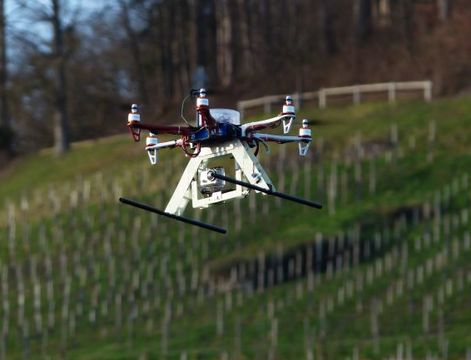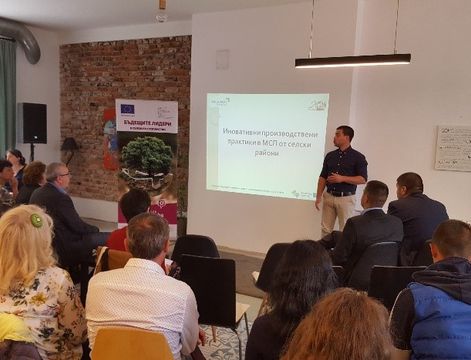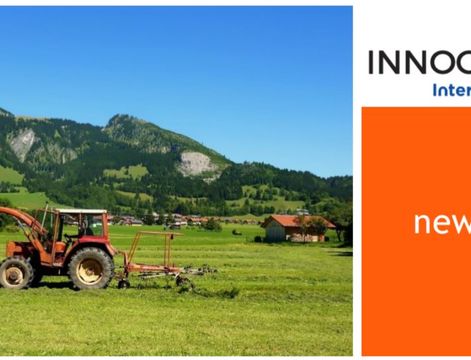INTERNATIONAL CONFERENCE "PROMOTING THE DEVELOPMENT OF INNOVATIVE TECHNOLOGIES AND NEW BUSINESS MODELS IN SMALL AND MEDIUM-SIZED ENTERPRISES IN THE COUNTRY"
An international conference on the promotion of the development of innovative technologies and new business models in small and medium-sized enterprises in rural areas took place at the Biotechnical Faculty in Rodica, on February 12th 2019, attended by 40 visitors from 8 European countries.

In cooperation with the Regional Development Agency Gorenjska, BSC, Ltd, Kranj, the University of Ljubljana, the Biotechnical Faculty organized an international conference, which was attended by speakers from four European countries.
Prof. Phd. Luka Juvančič, from the University of Ljubljana, Biotechnical Faculty, presented the process of transition to the bio-economy and the consequences for the economic convergence of rural areas. He emphasized the importance of the bio-economy, the new way of thinking and business models that support the exploitation of all possible materials, products, and by-products and are based on the idea of a circular economy. It is extremely important to care for the harmless production of food and products, both for nature and people. Organically produced food also has greater added value in the market as well. According to him, Slovenia has the greatest potential, for economic development in terms of exploiting natural resources, hidden in the sustainable exploitation of forests, especially in the processing of wood in semi-products and products.

Matthew Gorton from the University Newcastle, UK, presented lessons from INNOGROW and the UK on supporting innovation for rural economy SMEs, which included reflections on the development of an online benchmarking tool, rural enterprise analysis for England and rural enterprise hubs as a mechanism for facilitating rural enterprise innovation and growth. Rural enterprise centers represent a mechanism to promote innovation and the growth of rural businesses. Entrepreneurship in rural areas is not lagging behind business in urban areas. Businesses in rural areas usually start at home because at a stage of a start-up entrepreneurs want to reduce the cost of renting offices and transportation. Depending on the technological capabilities of distance communication and mobility they often need not to change the location even during the expansion phase. Business centers are great support in rural areas that offer business space and an entrepreneurial environment. The location changes usually due to the growth of the company and the need for more space, which can be a problem, in case there is no possibility of renting or buying the proper space in the primary environment.











